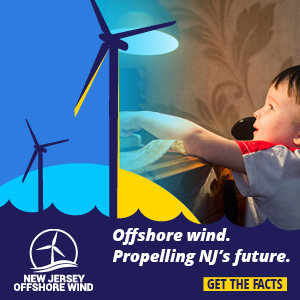
United Makes Bold Environmental Commitment Unmatched by Any Airline; Pledges 100% Green by Reducing Greenhouse Gas Emissions 100% by 2050
United will meet this ambitious goal by making industry-leading investments in new technology and sustainable fuels - not from buying carbon offsets Airline to make a multimillion-dollar investment in revolutionary atmospheric carbon capture technology that is expected to capture and store millions of metric tons of CO2 per year
CHICAGO, Dec. 10, 2020 /PRNewswire/ -- United Airlines today is taking its most ambitious step yet in leading the fight against climate change: pledging to become 100% green by reducing its greenhouse gas (GHG) emissions by 100% by 2050. United, which in 2018 became the first U.S. airline to commit to reducing its GHG emissions by 50% by 2050, will advance towards carbon neutrality by committing to a multimillion-dollar investment in revolutionary atmospheric carbon capture technology known as Direct Air Capture – rather than indirect measures like carbon-offsetting – in addition to continuing to invest in the development and use of sustainable aviation fuel (SAF). With this unprecedented announcement, United becomes the first airline in the world to announce a commitment to invest in Direct Air Capture technology.
"As the leader of one of the world's largest airlines, I recognize our responsibility in contributing to fight climate change, as well as our responsibility to solve it," said Scott Kirby, United's chief executive officer. "These game-changing technologies will significantly reduce our emissions, and measurably reduce the speed of climate change – because buying carbon offsets alone is just not enough. Perhaps most importantly, we're not just doing it to meet our own sustainability goal; we're doing it to drive the positive change our entire industry requires so that every airline can eventually join us and do the same."
Investment in Direct Air Capture Technology
Rather than simply taking a conventional approach to decarbonization by relying solely on the purchase of carbon offsets, United intends to make a multimillion-dollar investment in 1PointFive, Inc., a partnership between Oxy Low Carbon Ventures, a subsidiary of Occidental (NYSE:OXY), and Rusheen Capital Management. 1PointFive's mission is to curb the rise in global temperatures by physically removing carbon dioxide (CO2) from the air using Direct Air Capture technology licensed from Carbon Engineering.
Direct Air Capture technology is one of the few proven ways to physically correct for aircraft emissions, and can scale to capture millions and potentially billions of metric tons of CO2 per year. The captured CO2 will then be permanently, safely and securely stored deep underground by Occidental, a process certified by independent third parties. The commitment – the first to be announced in the aviation industry – will help 1PointFive build the first industrial-sized Direct Air Capture plant in the United States. A single plant is expected to capture and permanently sequester one million tons of CO2 each year, the equivalent of the work of 40 million trees, but covering a land area about 3,000 times smaller.
Investments in Sustainable Aviation Fuel
With up to 80% less lifecycle carbon emissions than conventional jet fuel, sustainable aviation fuel is the fastest and most effective way United is reducing its emissions. Among all airlines globally, United holds more than 50% of all publicly announced future purchase commitments to using SAF and has the longest history of using SAF of any U.S. airline. Last year, United renewed its contract with Boston-based World Energy, agreeing to purchase up to 10 million gallons of cost-competitive SAF. United has used this SAF to help sustainably power every flight departing its Los Angeles hub since 2016.
Additionally, United has invested more than $30 million in California-based sustainable fuel producer Fulcrum BioEnergy, which remains the single largest investment by any airline globally in a sustainable fuel producer.
Since 2016, United has used the most SAF of any airline globally and has flown:
- 26 million passengers on flights powered with a SAF blend
- 44 billion passenger-miles on flights powered with a SAF blend
- 215,000 flights powered with a SAF blend
United's Commitment to the Environment
United's commitment to becoming carbon-neutral by 2050 represents yet another leadership position the airline has taken to reduce its impact on the environment. United's significant environmental achievements include:
- Becoming the first airline globally to incorporate SAF in regular operations on a continuous basis, marking a significant milestone in the industry by moving beyond test programs and demonstrations to the everyday use of low-carbon fuel in ongoing operations
- In 2019, we committed $40 million toward an investment initiative focused on accelerating the development of SAF and other decarbonization technologies
- Operating the Flight for the Planet in 2019, which represented the most-eco-friendly commercial flight of its kind in the history of commercial aviation
- Becoming the first airline to fly with Boeing's Split Scimitar winglets, which reduce fuel consumption by an additional 2% versus standard winglets; United is the largest Scimitar winglet operator today, with nearly 400 aircraft equipped with these winglets
- Becoming the first U.S. airline to repurpose items from the carrier's international premium cabin amenity kits and partnering with Clean the World to donate hygiene products to those in critical need
- Eliminating non-recyclable plastic stirring sticks and cocktail picks on aircraft and replacing them with a more environmentally friendly product made of 100% bamboo
- Continuing to replace its eligible ground equipment with cleaner, electrically powered alternatives, with nearly 45% of the fleet converted to date
United's Award-Winning Eco-Skies Program
United's award-winning Eco-Skies program represents the company's commitment to the environment and the actions taken every day to create a more sustainable future. Earlier this month, the Carbon Disclosure Project named United as the only airline globally to its 2020 'A List' for the airline's actions to cut emissions, mitigate climate risks and develop the low-carbon economy, marking the seventh consecutive year that United had the highest CDP score among U.S. airlines.
In 2017, Air Transport World magazine named United its Eco-Airline of the Year for the second time since the airline launched the Eco-Skies program. Additionally, United ranked No. 1 among global carriers in Newsweek's 2017 Global 500 Green Rankings, one of the most recognized environmental performance assessments of the world's largest publicly traded companies.
For more information on United's commitment to environmental sustainability, visit united.com/ecoskies.
About United
United's shared purpose is "Connecting People. Uniting the World." For more information, visit united.com, follow @United on Twitter and Instagram or connect on Facebook. The common stock of United's parent, United Airlines Holdings, Inc., is traded on the Nasdaq under the symbol "UAL".
Safe Harbor Statement under the Private Securities Litigation Reform Act of 1995
Certain statements in this release are forward-looking and thus reflect our current expectations and beliefs with respect to certain current and future events. Such forward-looking statements are and will be subject to many risks and uncertainties relating to our operations and business environment that may cause actual results to differ materially from any future results expressed or implied in such forward-looking statements. Words such as "expects," "will," "plans," "anticipates," "indicates," "remains," "believes," "estimates" and similar expressions are intended to identify forward-looking statements. Additionally, forward-looking statements include statements that do not relate solely to historical facts, such as statements which identify uncertainties or trends, discuss the possible future effects of current known trends or uncertainties, or which indicate that the future effects of known trends or uncertainties cannot be predicted, guaranteed or assured. All forward-looking statements in this release are based upon information available to us on the date of this release. We undertake no obligation to publicly update or revise any forward-looking statement, whether as a result of new information, future events, changed circumstances or otherwise, except as required by applicable law. Our actual results could differ materially from these forward-looking statements due to numerous factors including, without limitation, the risks and uncertainties set forth under Part I, Item 1A., "Risk Factors," of our Annual Report on Form 10-K for the fiscal year ended December 31, 2019, as updated by our Quarterly Report on Form 10-Q for the quarter ended September 30, 2020, as well as other risks and uncertainties set forth from time to time in the reports we file with the U.S. Securities and
Scott Kirby Letter on United’s 100% Green Commitment to Reduce Greenhouse Gas Emissions 100% by 2050
The COVID-19 pandemic has disrupted the world in many ways. For the airline industry, it has been the most punishing financial blow in our history. Despite the continuing challenges, we at United Airlines have dedicated ourselves every step of the way to make flying as safe as we can, and we always will.
Still, this crisis will end. That’s why we’re keeping our focus on another crisis that will force all of us to change our behavior in far more dramatic ways than the pandemic ever did: the crisis of a changing climate. The longer we wait, the more drastic those changes will have to be. So we have to start making them now. And rather than pay lip service to the problem, United is taking advantage of this moment to lead our industry toward real solutions and lasting change.
When I became United Airlines’ new CEO at the beginning of the pandemic, I did so with a grand vision for our company: to make sustainability the new standard in flight. I realize it’s an ambitious vision for someone in an industry that depends on burning fossil fuels to operate. As the leader of one of the world’s largest airlines, I recognize our responsibility in contributing to climate change as well as our responsibility to solve it. It’s no longer enough for us to connect the world without making sure it has a future. Our children – and I’ve got six, and a seventh on the way – have to live with the consequences of the decisions we make right now.
With that in mind, I’m proud to announce that today, United is taking a new approach to climate change – and it’s one you might not expect.
We’re embracing a new goal to be 100% green by 2050 by reducing our greenhouse gas emissions 100%. And we’ll get there not with flashy, empty gestures, but by taking the harder, better path of actually reducing the emissions from flying.
You’ve probably heard of carbon offsets. While they may offer customers some peace of mind, traditional carbon offsets do almost nothing to tackle the emissions from flying. And, more importantly, they simply don’t meet the scale of this global challenge. Carbon emissions have increased 4000 times since the industrial revolution. It’s just not realistic to think we can plant enough trees to start bending that curve today.
I believe the world and the airline industry has to be bolder. In addition to all the great work happening in renewable energy, I see two paths that lead to a solution. And United is proud to lead the rest of the industry down each path.
Most of an airline’s contribution to climate change comes from the fuel it takes to fly. That’s why the first path is to switch to Sustainable Fuel – including Sustainable Aviation Fuel (SAF). It’s a fuel with up to 80 percent fewer carbon emissions than conventional jet fuel, making it the fastest way to reduce our emissions across our fleet. And it’s not some far-off technology: United has invested heavily in SAF for more than a decade now, to the point where we now are a leader in the growing global industry we helped create—and there’s enough supply for our competitors to join us in this switch.
The second path to sustainability is to embrace other promising technologies like carbon capture and sequestration. This is the only scalable technology that actually removes carbon from the atmosphere today and buries it deep underground.
Today, I am proud to announce that United is breaking new ground all over again, just like we did with Sustainable Fuels a decade ago, by committing to a multimillion-dollar investment in a startup that captures carbon using Direct Air Capture technology. Our investment will help fund the first of several Direct Air Capture plants that are expected to capture and store one million metric tons of CO2 per year. That’s the equivalent to planting 40 million trees. Most importantly, sequestration is a real and permanent solution.
These game-changing technologies will significantly reduce our emissions, and measurably reduce the speed of climate change. United Airlines is the only airline investing in these technologies. And we’re not just doing it to meet our own sustainability goal. We’re doing it to drive the positive change our entire industry requires so that every airline can eventually join us and do the same.
Simply put, while some other airlines rely solely on marketing gimmicks to offset their emissions, we’re working to solve the problem in a permanent way – before you even take your seat.
After all, your journey begins before you board our planes. So should ours.
Additional Info
Media Contact : Blenda Pinto | blenda.riddick@united.com






